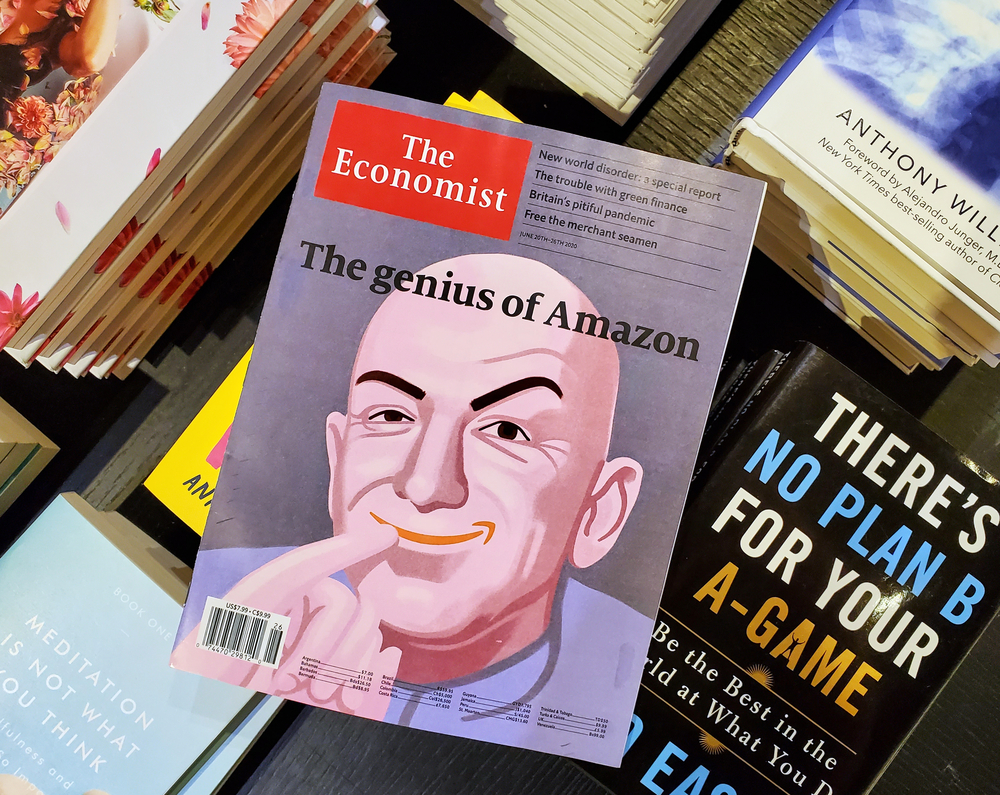Death is part of the natural cycle of life. However, a group of tech billionaires are looking to change that. They want to use their wealth and resources to help humans live longer.
Jeff Bezos of Amazon, Larry Page of Alphabet, Peter Thiel of Palantir, and Larry Ellison of Oracle are some of the richest people in the world who are keen on investing in the growing field of longevity and life extension.
Although there are no proven ways to achieve this, they’re hopeful that different therapies, medicines and other pathways to longevity will help humans live longer than their current life span.
Tech billionaires who have already invested in longevity
The MIT Technology Review published a report in September 2021 highlighting Jeff Bezos’s active role in helping humans live longer. The report says Bezos has pumped 199 billion dollars into a new “rejuvenation” company in Silicon Valley called Altos Labs.
The start-up is said to specialize in biological programming technology, a new technique that promises to rejuvenate cells and rejuvenate the whole human body, eventually extending life. Yuri Milner, a Russian venture capitalist who made his billions on Facebook, is said to be part of the project.
Jeff Bezos is currently the second wealthiest person in the world after Elon Musk.

Another tech billionaire who’s actively contributing to this cause is Oracle founder Larry Ellison. According to The New Yorker, he has donated over 370 million dollars towards the research of ageing and age-related diseases.
Also, founders of Google, Larry Page and Sergey Brin, played a pivotal role in the launch of Calico Labs, a research and development biotech company that uses animal models to study metabolic disorders and neurodegenerative diseases. The company is closely following the entire life of mice to see if they can identify markers for diseases like Alzheimer’s and diabetes. Calico is a subsidiary of Alphabet, together with Google.
Another tech billionaire who supports longevity is PayPal and Palantir co-founder Peter Thiel. In 2016, he made a donation of 3.5 million dollars towards anti-ageing research conducted by a non-profit foundation called Methuselah Foundation.
Thiel believes recent advances in biological science look promising and can only mean a treasure trove of breakthroughs this century, including a dramatic improvement in health and longevity for humans. According to Time, Thiel has so far increased his contribution to the Methuselah Foundation to 7 million dollars.
Both Bezos and Thiel have already invested in Unity Biotechnology, according to The New Yorker. The San Francisco-based company seeks to wipe out a third of human diseases in developed countries.
Meanwhile, in an interview with CNBC in September 2020, UK billionaire Jim Mellon said he intends to take his life extension company, Juvenescence, public in a year. Although this move is yet to be seen, Juvenescence has continued to invest in different anti-ageing therapies that could help humans live longer.
Juvenescence is also associated with California-based AgeX Therapeutics Inc., which is trying to develop therapeutics for ageing and regeneration. Other billionaires including Mike Cannon-Brookes, the co-founder of Australian software company Atlassian, and Michael Spencer, the founder of NEX Group, have also invested in Juvenescence.
However, whether this new area of interest is set to benefit the whole of humanity or only the rich is a question that’s up for debate.
Divided opinions on the mission to support longevity
According to Stefan Schubert, a researcher who studies Effective Altruism at the London School of Economics and Political Science, new technologies that can only be accessed by elites will eventually be available to the general public. This is actually evident in other areas such as medicine, air travel, and treatments.
Elsewhere, Skype co-founder and tech investor Jaan Tallinn believes the tech billionaires’ efforts to support longevity will benefit the whole of humanity in the end, although it’s “counter-productive” to make a new technology available to the general public before anyone has been allowed to use it.

Many people believe breakthroughs in life extension would have many benefits, such as reducing or eliminating age-related diseases like stroke, hypertension, and dementia.
However, some argue that longevity would strain the Earth’s resources. Well, they might be right, but then, by the time any longevity pathway is given the green light, the population around the world would have stabilized. Also, thanks to the many advances in modern family planning, and the removal of physical and social barriers, there are less unplanned pregnancies, thus helping to reduce the population growth rate.
The debate continues to attract more divided opinions. Jon Crowcroft, a professor of Communications Systems at Cambridge, suggests it would be better to channel the billions into climate change rather than longevity. He told CNBC that living longer in a “dying world” would be somewhat meaningless.
However, Tallinn believes that this quest to extend human lifespan is “commendable.”
“I think it’s generally unfair to pit good causes against each other in a world where most resources are wasted on morally unimportant or even reprehensible things,” – Tallinn added.
With tech billionaires investing heavily in research and facilities that would extend human life, the entire human race is expected to benefit eventually. We should also expect to see more longevity pathways and cryonics institutes in the near future.















